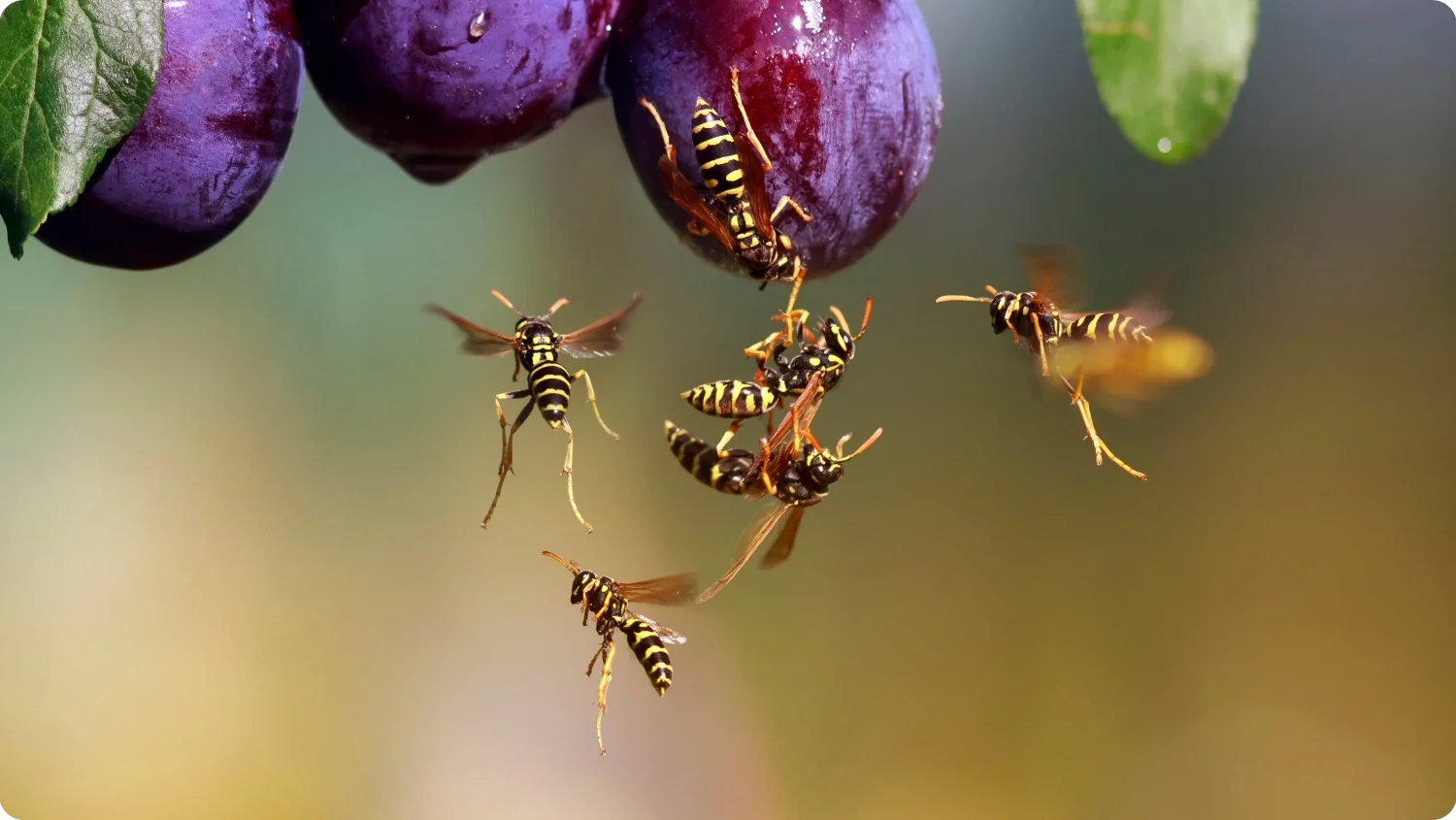Uninvited Summer Guests: Everything You Need to Know About Wasps
For many UK households, summer brings a familiar nuisance: wasps.
They're part of the natural ecosystem, but when they appear in high numbers or start nesting close to (or inside) your home, they can quickly move from irritating to risky.
In dense urban areas like London, where gardens, roof terraces and loft spaces are tightly packed, wasp activity can be even harder to ignore.
First, a note in defence of the wasp
Before we go further, it’s worth saying: wasps do serve a purpose. They’re natural pest controllers, feeding on aphids and caterpillars that damage plants. Some species help pollinate, and others break down organic waste.
In short, they’re not malicious - just misplaced when they move into human homes. Managing them well means striking the balance between safety and respect for their role in the ecosystem.
When are wasps most active?
In the UK, wasps become noticeably more active from late spring, with July to September being their peak season. By late summer, food sources dwindle, and their usual diet of insects and sugary sap becomes harder to find. This is when they tend to behave more aggressively, drawn to sweet drinks, ripe fruit and anything sugary left outdoors.
In London, wasps are often drawn to bins kept outside, roof gardens, outdoor café tables and urban waste areas - which means your home can become part of their daily circuit, even if you keep things tidy.
Why are wasp nests a concern?
A wasps’ nest may begin small, but by late summer it can house thousands of insects. In London properties, nests are often tucked into lofts, cavity walls, utility cupboards, or even hidden air bricks - going unnoticed until activity spikes.
Aside from the obvious sting risk (which can be serious or even life-threatening for those with allergies), wasps create noise, mess and structural risk if they’re chewing through wood or nesting in insulation. In a compact home or flat, a disturbed nest doesn’t just affect one room - it can impact the whole property, including your neighbours.
Can you deal with it yourself?
There are over-the-counter sprays and foams, though they come with caveats. Treating a nest safely requires knowing where the queen is, wearing full protective gear, and applying insecticide correctly and confidently.
For smaller or early-stage nests, experienced homeowners may attempt this. But in city properties - with shared walls, awkward access and strict safety regulations - a DIY approach can create more problems than it solves.
Professional pest control: what to expect
A trained technician will identify the species (there are several), locate all entry points, and use the correct treatment method, usually a professional-grade insecticidal dust or spray.
Most nests are neutralised in a single visit.
If access is difficult - such as on a high London terrace or under a second-floor eave - specialist equipment may be required. And for those living in listed properties, a professional will also ensure compliance with local safety or building restrictions.
How to spot the early signs
– A regular pattern of wasps coming and going from a single point
– Scratching or buzzing sounds in the loft or internal walls
– Unexplained droppings or debris near windows, vents or balcony doors
– Sudden increase in wasp presence near bins, balconies or communal areas
Prevention is worth it
Keep bins sealed, fruit bowls covered, and avoid leaving sweet drinks or food outside.
Roof terraces, lightwells and Juliet balconies should be checked regularly - even if they’re rarely used. And if you’ve had a nest before, it’s worth looking over those same areas in early spring when queens look for nesting spots.
And if you're a CiD client, this is something your EA can take off your list entirely - bringing in one of our trusted pest control experts who know their way around London properties and access restrictions. We will solve this for you before it becomes a bigger issue.


